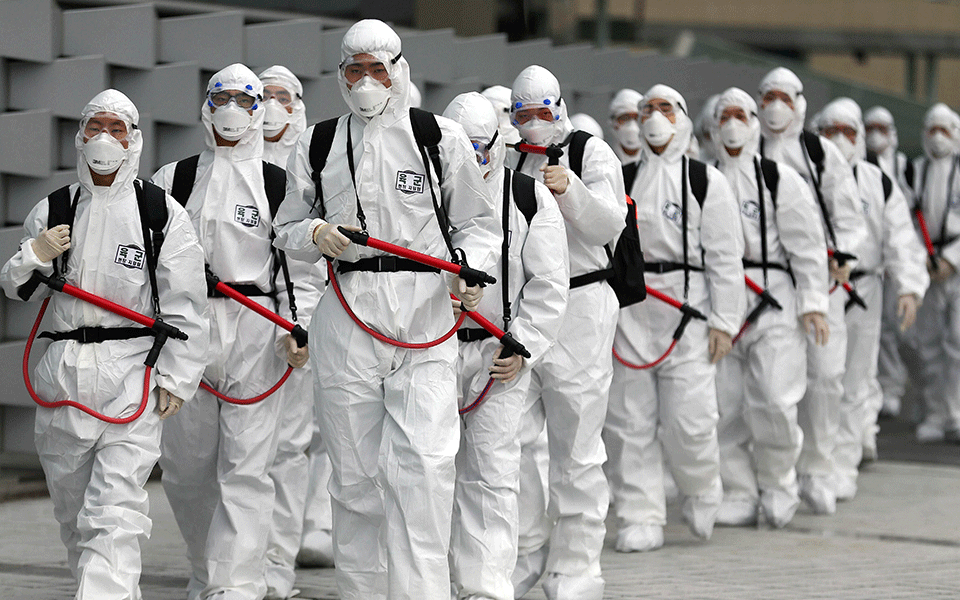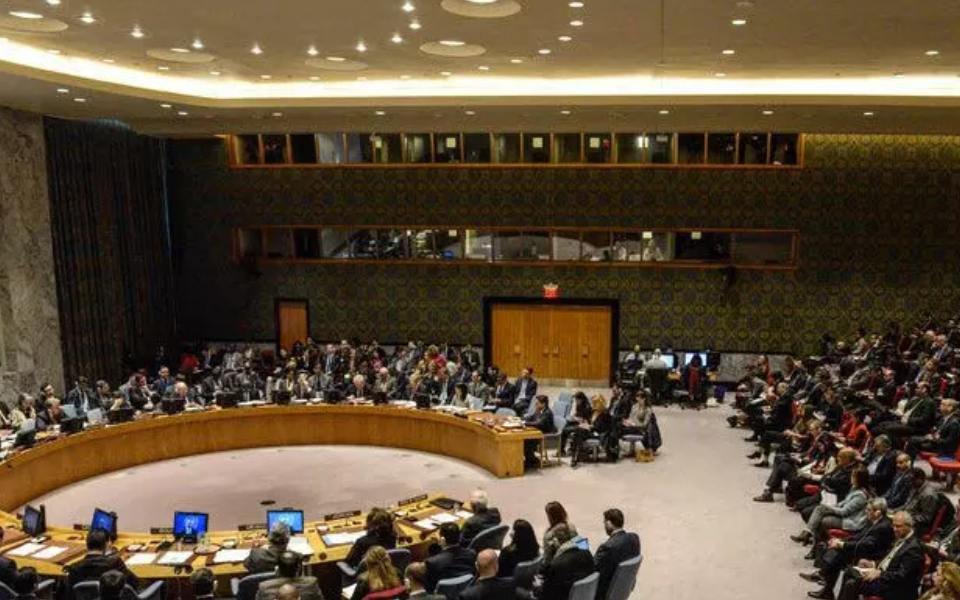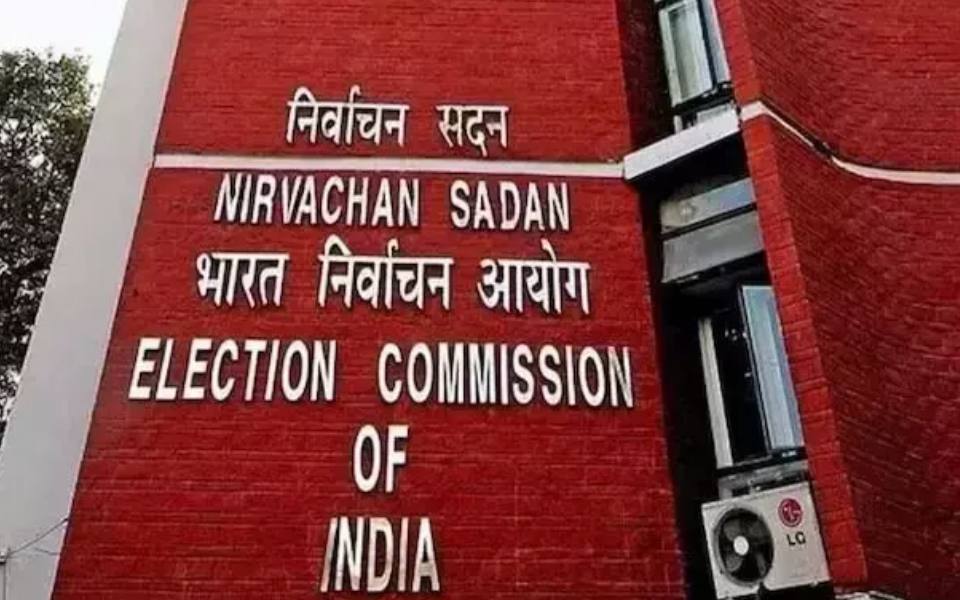Dubai: The United Arab Emirates, home to the world's busiest international airport, announced early on Monday that it was suspending all passenger and transit flights for two weeks to stymie the spread of the new coronavirus.
The announcement came a day after the first cases were reported in the Gaza Strip and Syria, where years of conflict have severely degraded the local health care infrastructure. The new cases also raised fears about other vulnerable areas, like war-torn Libya and Yemen.
Dubai's airport is a vital hub connecting Western nations with countries in Asia and Australia, and suspending transit flights there affects travelers around the world.
Saudi Arabia, meanwhile, announced that an evening curfew would go into effect starting Monday from 7 p.m. to 6 a.m. for three weeks.
Countries across the Middle East have ramped up restrictions on daily life in an effort to contain the global pandemic.
Most people only experience mild symptoms from the COVID-19 disease caused by the virus and recover within weeks. But it is highly contagious and causes severe illness in some patients, particularly the elderly and those with weakened immune systems. People can carry and spread the virus without showing any symptoms.
More than 331,000 people have been infected worldwide, and more than 14,400 have died. Nearly 100,000 people have recovered.
There are around 26,800 cases of the virus confirmed in the Middle East, but more than 21,000 of those cases are in Iran and many others are linked to travelers from Iran, which has reported nearly 1,700 fatalities.
The UAE's emergency and crisis management body and its Civil Aviation Authority said in a statement that the decision to stop all commercial flights, including even transit flights, would take effect in 48 hours. The aviation authority said cargo and emergency evacuation flights would be exempt from the ban.
Saudi Arabia and at least seven other countries in the Middle East have already suspended all commercial flights to try and stop the spread of the virus. Also, several Mideast countries, including Iraq and Kuwait, have imposed evening curfews.
The UAE's Ministry of Interior announced overnight that people should only leave their homes in their personal cars for work or necessities. It said further announcements would be made regarding rules for taxis and public transport, on which many foreign laborers and workers across the country rely. It warned that violators could face fines or imprisonment.
The UAE also announced that malls, shopping centers and restaurants will be closed for at least two weeks, though restaurants can still offer delivery service.
The decision affects some of world's biggest malls and indoor mall attractions in the emirates of Dubai and Abu Dhabi. Grocery stores, pharmacies and wholesale food suppliers are exempt from the ban.
Countries across the Gulf have already closed schools, gyms, parks, beaches and mosques to the public, including Islam's holiest sites in Makkah and Madina.
The cases in Gaza and Syria have raised particular concern, as both would be ill-equipped to detect or contain an outbreak. Authorities in Gaza say two people tested positive and were isolated after returning from Pakistan.
Syria said a 20-year-old woman tested positive after entering from another country, without providing further details Gaza has been under an Israeli and Egyptian blockade since the Islamic Hamas movement seized power from rival Palestinian forces in 2007. The coastal territory is home to more than 2 million people but it only has around 60 ventilators, and all but 15 are already in use, according to Abdelnasser Soboh, director of the World Health Organization's Gaza office.
The nine-year civil war in Syria has left millions of people internally displaced. Poverty is rampant and many medical facilities are barely functioning.
There are similar concerns about a catastrophe if the virus turns up in Libya or Yemen, which are both divided by civil wars that have ruined their healthcare systems. Afghanistan reported its first death on Sunday, a man in his 40s. The war-ravaged country has reported 34 confirmed cases.
Let the Truth be known. If you read VB and like VB, please be a VB Supporter and Help us deliver the Truth to one and all.
United Nations, Apr 19: The US has vetoed a resolution in the UN Security Council on the latest Palestinian bid to be granted full membership of the United Nations, an outcome lauded by Israel but criticised by Palestine as “unfair, immoral, and unjustified".
The 15-nation Council voted on a draft resolution Thursday that would have recommended to the 193-member UN General Assembly “that the State of Palestine be admitted to membership in the United Nations.”
The resolution got 12 votes in its favour, with Switzerland and the UK abstaining and the US casting its veto.
To be adopted, the draft resolution required at least nine Council members voting in its favour, with no vetoes by any of its five permanent members - China, France, Russia, the United Kingdom and the United States.
Palestinian attempts for recognition as a full member state began in 2011. Palestine is currently a non-member observer state, a status that was granted in November 2012 by the UN General Assembly.
This status allows Palestine to participate in proceedings of the world body but it cannot vote on resolutions. The only other non-member Observer State at the UN is the Holy See, representing the Vatican.
Israel’s Foreign Minister Israel Katz praised the US for vetoing what he called a “shameful proposal.”
“The proposal to recognise a Palestinian state, more than 6 months after the largest massacre of Jews since the Holocaust and after the sexual crimes and other atrocities committed by Hamas terrorists was a reward for terrorism”, Katz wrote on X, after the US veto.
US Ambassador Robert Wood, Alternative Representative for Special Political Affairs, said in the explanation of the vote at the Security Council meeting on Palestinian membership that Washington continues to strongly support a two-state solution.
“It remains the US view that the most expeditious path toward statehood for the Palestinian people is through direct negotiations between Israel and the Palestinian Authority with the support of the United States and other partners,” he said.
“This vote does not reflect opposition to Palestinian statehood, but instead is an acknowledgement that it will only come from direct negotiations between the parties.”
Wood said there are “unresolved questions” as to whether Palestine meets the criteria to be considered a State.
“We have long called on the Palestinian Authority to undertake necessary reforms to help establish the attributes of readiness for statehood and note that Hamas - a terrorist organisation - is currently exerting power and influence in Gaza, an integral part of the state envisioned in this resolution,” he said, adding that “For these reasons, the United States voted “no” on this Security Council resolution.”
Wood noted that since the October 7 attacks last year against Israel by Hamas, US President Joe Biden has been clear that sustainable peace in the region can only be achieved through a two-state solution, with Israel’s security guaranteed.
"There is no other path that guarantees Israel’s security and future as a democratic Jewish state. There is no other path that guarantees Palestinians can live in peace and with dignity in a state of their own. And there is no other path that leads to regional integration between Israel and all its Arab neighbours, including Saudi Arabia,” he said.
The Palestinian Authority President, Mahmoud Abbas, sharply criticised the US veto, saying that it was “unfair, immoral, and unjustified, and defies the will of the international community, which strongly supports the State of Palestine obtaining full membership in the United Nations.”
Riyad Mansour, Permanent Observer of the State of Palestine, said that “our right to self-determination has never once been subject to bargaining or negotiation.
“Our right to self-determination is a natural right, a historic right, a legal right. A right to live in our homeland Palestine as an independent state that is free and that is sovereign. Our right to self-determination is inalienable...,” he said.
Getting emotional and choking up as he made the remarks, Mansour said that a majority of the Council members “have risen to the level of this historic moment” and have stood “on the side of justice, freedom and hope.”
He asserted that Palestine’s admission as a full member of the UN is an “investment in peace.”
On April 2, 2024, Palestine again sent a letter to UN Secretary-General Antonio Guterres requesting that its application for full UN membership be considered again.
For a State to be granted full UN membership, its application must be approved both by the Security Council and the General Assembly, where a two-thirds majority of the members present and voting is required for the State to be admitted as a full member.
Earlier in the day, Guterres, in his remarks to a Council meeting on the Middle East, warned that the region is on a “knife edge”.
“Recent escalations make it even more important to support good-faith efforts to find lasting peace between Israel and a fully independent, viable and sovereign Palestinian state,” Guterres said.
“Failure to make progress towards a two-state solution will only increase volatility and risk for hundreds of millions of people across the region, who will continue to live under the constant threat of violence,” he said.
The UN, citing the Ministry of Health in Gaza, said that between October 7 last year and April 17, at least 33,899 Palestinians have been killed in Gaza and 76,664 Palestinians injured. Over 1,200 Israelis and foreign nationals, including 33 children, have been killed in Israel, the vast majority on October 7.
As of April 17, Israeli authorities estimate that 133 Israelis and foreign nationals remain captive in Gaza, including fatalities whose bodies are withheld.





